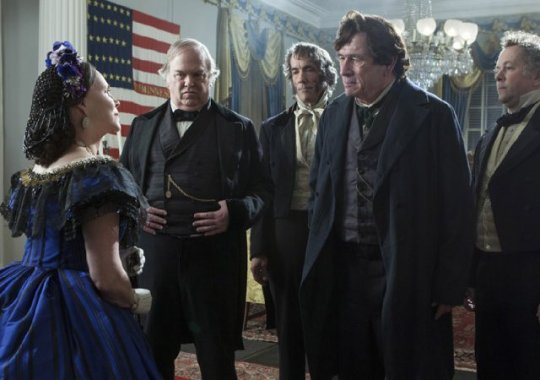#gab domingues
Photo









Site Model icons
‒ like or reblog if you save
#jessy hartel#jessy hartel icons#gab domingues#gab domingues icons#alyssa nicole#alyssa nicole icons#azaria mckinnon#azaria mckinnon icons#khelan hajo#khelan hajo icons#cindy kimberly#cindy kimberly icons#joleen diaz#joleen diaz icons#fjolla#fjolla icons#zoia mossour#zoia mossour icons#site model icons#dark hair icons#site model#girls icons#meninas icons#icons
82 notes
·
View notes
Text
"Ando encantado com o futuro,
vivendo refém do passado.
Vulnerável no presente
de angústia e dor.
Poderia eu
viver do que restou?
Ando mentindo
sobre o que sinto,
porque vulnerável
o amor me deixou.
Poderia eu
novamente
sentir prazer,
esquecer da dor?
Ando encantado com o futuro,
tem gosto doce,
tem riso frouxo.
Ando mascarando o que sinto,
afogando essas borboletas
que por teimosia
insistem em meu estômago embrulhar.
Poderia eu deixar o passado
e novamente
amar?"
— Gabs Domingues
0 notes
Text
Éric Alliez & Maurizio Lazzarato’s Wars and Capital
❍❍❍

The book is examining Wars and Capital, with State in between as an important element to constitute the notion of politics (in a Schmittian & Greek sense). I came across the book in an exhibition titled Crossings in Kunsthal Charlottenborg in Copenhagen this Christmas. The cover description of the book says: “A critique of capital through the lens of war, and a critique of war through the lens of the revolution of 1968.” I have read some of the works of Lazzarato before on notion of sovereignty, which made me interested to read this one.
The book is drawing heavily from the Nazi racist political scientist Carl Schmitt (who was going as far as demanding that all publications by Jewish scientists should henceforth be marked with a small symbol) and at the same time political works of Foucault and Deleuze. Unsurprisingly, Foucault has been criticized for being too liberal, specifically in chapter 7: “The Limits of the Liberalism of Foucault”. That’s also probably, the reason that Schmitt’s Naziism has not been mentioned throughout the whole book. Schmitt has been cited more than 35 times and one chapter is dedicated to him alongside Lenin. (Chapter 8: The Primacy of Capture, Between Schmitt and Lenin)
Alliez and Lazzarato seem to fully agree with Wallerstein’s world-system theory. Creation of the term "War of subjectivity” (which is also another fancy word for identity-politics) is a big part of the concept. Since today everyone has recognized that mostly white-boys are complaining about identity politics (for obvious reasons), writers have become creative in coming up with this new term “War of subjectivity”. However, the essence of the book is pushing for the same good-old critiques: fascism is not so different from Capitalism / Anthropocene is Capitalocene / poor White workers in England suffered as much as slaves in America (page 115, 374) / Postmodernism is bad, class-consciousness is needed… etc. etc.
“During colonization, entire peoples, after having been expropriated from their ‘life as savages,’ let themselves die off rather than fall into a slavery that could include the option of ‘free labor.’ ‘Free labor’ that the practice of working to death in workshops and manufactures brings so close to slavery itself that the Morning Star—the organ of the English free-traders—could exclaim: ‘Our white slaves, who are toiled into the grave, for the most part silently pine and die.’”
The centrality of the debt-economy concept is always present in the background of the book. Also, neoliberalism is defined as the “Global Civil War”. At some point, I questioned myself if he’s just adding the word WAR at the end of anything that capital is to blame for? War here is referred to as “the most deterritorial form of sovereignty”. “War of Subjectivity”, “War of Race, class, gender, sex, etc..”. This is also not a new strategy, orthodox white-boy Marxists have been presenting all sorts of privileges (especially “white-privilege” and “male privilege”) as a divider and a sidetrack for class wars. Borrowing from Giovanni Arrighi, they inserted a passage that clearly shows how they think about colonialism. They blame almost everything aside from the most important element: “racism”.
“The synergy between capitalism, industrialism, and militarism, driven by interstate competition, did indeed engender a virtuous circle of enrichment and empowerment for the peoples of European descent and a corresponding vicious circle of impoverishment and disempowerment for most other peoples.”
Methodologically, the book almost never steps out of Europe. Although there are some great historical references to wars and interventions in developing countries, which are also the intersection of capitalism and colonialism -examples such as Haiti’s slave rebellion of Saint-Domingue. The strength of the book is in identifying all different modes of governmental industrial militarism, or “military Keynesianism”, which enabled colonial power to quite down internal civil war during the process of colonialism. The example of Nazi Germany’s full population employment due to war was very aligned with these analyses. In section 9.6 of the book, the writers argue how post-war welfare states were able to erase the differences between war-time and peace-time, which was part of the larger debate on how “warfare states” transferred to “welfare states”. This is also the same reason I kept reading all the 430 pages of the book.
In 1957 the Nazi Carl Schmitt invited Kojeve to give a lecture addressing representatives of “Rhine capitalism” at an exclusive club in Düsseldorf. The title of the talk was "Colonialism from a European Perspective". Alexandre Kojeve, a right-wing Hegelian bureaucrat, dissected colonialism into two categories of “giving colonialism” and “taking colonialism”. He says: “Thus one must really ask the question today: how can colonialism be economically reconstructed in a "Fordist" way, so to speak? On the face of it, there are three conceivable methods, and all three have already been suggested.” Lazzarato probably turned on by this distinction, references Kojeve alongside Schmitt and replaces the word “colonialism” with “capitalism” to flatten all ambiguities that colonialism is the same as capitalism. Following the reminder that the Capitalist mode of production is simultaneously a mode of destruction.
The biggest problem that I have with the book, is that it equalizes the poor white workers of the 17-19th century in Europe to the slaves in Africa and the Americas. I call this act “theoretical colonization”. While race-blindness remains an issue in the book, it’s another problem to reduce the suffering of racial slavery in order to equalize them with Western white workers.
It’s very comical that in one instant they called Foucault’s theory “Eurocentric” and also “British-centric”!? Showing that they actually have no clue what these terms mean or where it's coming from. I agree with Spivak that to some extend Foucault’s work is slightly Eurocentric, but to hear this from a conservative white boy like Lazzarato is admittedly a bit humorous.
What came to my mind during reading Wars and Capital was the film “Lincoln (2012)”. By attacking 19th-century-liberals, the film made all the right-wing people happy (including those radicals who hated Obama and later in 2016, voted for Trump). In the background of this recollection is also the most racist film of all times "The Birth of a Nation (1925)” by D. W. Griffith, which depicted the abolitionist Thaddeus Stevens very negatively.
The writers attack the liberalism of John Locke and his support of slavery. By using this 17th-century example, they are constructing a case that centrism (the equivalent of today’s conflicts of subjectivity, which for them falls under the bigger umbrella of liberalism) is the secret motor of liberal governmentality. What Lazzarato is neglecting is not class consciousness but the fact that what constitutes an abolitionist position in the West, is not the race-blindness of homo oeconomicus but is a consciousness of race, culture, and colonialism.
Expectedly and appropriately, there is no actual examination of what racism is in the book. Similar to other orthodox leftists, writers refuse to get into any analysis of racism. They hijack the notion of racism when it intersects with wage-gab, or harsh working conditions in Europe. The only race that exists is the race of workers, problem solved! Classic!
In most cases, they use the word racism as a supplement to show the intensity of a particular concept (environmental racism, anti-labor racism, war-racism, eugenics of labor force). The ultimate aim is to reduce racism solely to market-violence. In other words, all sorts of social inequalities are a side-effect of the world’s economic system and therefore fall under the same category of social reproduction.
Éric Alliez and Maurizio Lazzarato are so orthodox that for them the radical white kids from ’60s are heterodox.
They are so orthodox when mentioning Korea, they don’t put south or north before it.
They are so orthodox that for them talking about “Black Power” is the same as talking about “White Power” because it is talking about race!
What Marxism needs is not another corps of the orthodoxy wrapped in the cutting-edge hip and fancy vocabulary, but a fresh inclusive, race-conscious framework that acknowledges people’s differences and culture prior to the call for unification of the workers. That’s the only way it can come out of the dark archaic place where it is now. Similar to Carl Schmitt critique of liberalism in the “The Concept of Political”, today, the same critique comes from people such as Bolsonaro, Trump, Putin, Erdogan, and the rest.
Here is a selection on Griffith’s work, from Sergei Eisenstein in the collection of essays, titled: Dickens Griffith and the Film Today (1944). The critique of liberalism seems to do nothing but to direct attention to the position of the writer. This passage precedes a description of a video made in mockery of Menshevik addressing in the Second Congress of Soviets.
“The role of Griffith is enormous, but our cinema is neither a poor relative nor an insolvent debtor of his. It was natural that the spirit and content of our country itself, in themes and subjects, would stride far ahead of Griffith's ideals as well their reflection in artistic images. In social attitudes Griffith was always a liberal, never departing far from the slightly sentimental humanism of the good old gentlemen and sweet old ladies of Victorian England, just as Dickens loved to picture them. His tender-hearted morals go no higher than a level of Christian accusation of human injustice and nowhere in his films is there sounded a protest against social injustice.”

The depiction of abolitionist Thaddeus Stevens in the racist film “The Birth of a Nation 1915” by D. W. Griffith.

The depiction of Thaddeus Stevens in Steven Spielberg’s “Lincoln (2012)″

The depiction of “The Birth of a Nation 1915” in Spike Lee’s “BlacKkKlansman (2018)″
Bib.
De Vries, Erik. 2001. “Alexandre Kojeve, ’Colonialism from a European Perspective’ 29 (1):”, no. 29 (1) (January), 115-30.
Eisenstein, Sergei. 2014. Film Form. HMH.
Koonz, Claudia. 2003. The Nazi Conscience. Cambridge, Mass.: Harvard University Press.
Schmitt, Carl. 2008. The Concept of the Political. University of Chicago Press.
0 notes
Photo









Site Model icons
‒ like or reblog if you save
#gabi brandt#gabi brandt icons#kendall jenner#kendal jenner icons#sara orrego#sara orrego icons#gab domingues#gab domingues icons#marta melo#marta melo icons#any borges#any borges icons#gabi rippi#gabi rippi icons#mari azevedo#mari azevedo icons#mariana sampaio#mariana sampaio icons#site model#site model icons#sunglasses#with psd#com psd#tumblr girls#girls icons#meninas icons#rbr garotas icons#icons
23 notes
·
View notes
Photo









Site Model icons
‒ like or reblog if you save
#nayna florence#nayna florence icons#gabi brandt#gabi brandt icons#clarissa muller#clarissa muller icons#julia herz#julia herz icons#gab domingues#gab domingues icons#livia nunes#livia nunes icons#sophia esperanza#sophia esperanza icons#marta melo#marta melo icons#olivia culpo#olivia culpo icons#site model#site model icons#brunnette icons#morenas icons#with psd#com psd#woman icons#random icons#meninas icons
49 notes
·
View notes
Photo









Site Model Tattoo icons
‒ like or reblog if you save
#mari fernandes#mari fernandes icons#victoria mondoni#victoria mondoni icons#bianca andrade#bianca andrade icons#clara maia#clara maia icons#gab domingues icons#gab domingues#lu rippi#lu rippi icons#suzanna freitas#suzanna freitas icons#gio serrano#gio serrano icons#any borges#any borges icons#site model icons#tattoo icons#tattoo girls#tattoo girls icons#girls icons#meninas icons#tatuagem icons#with psd#com psd#icons
20 notes
·
View notes
Photo









Site Model icons
‒ like or reblog if you save
#gabrielle epstein#gabrielle epstein icons#janae roberts#janae roberts icons#emilia silberg#emilia silberg icons#olivia o'brien#olivia o'brien icons#sara hardel#sara hardel icons#gab domingues#gab domingues icons#natalia basilio#natalia basilio icons#kelsey calemine#kelsey calemine icons#lilia weddell#lilia weddell icons#site model icons#site model#blonde icons#loiras icons#with psd#com psd#female icons#meninas icons#girls icons#icons
50 notes
·
View notes
Photo









Site Model icons
‒ like or reblog if you save.
#livia nunes#livia nunes icons#cindy mello#cindy mello icons#mariana sampaio#mariana sampaio icons#renee herbert#renee herbert icons#amanda pedroso#amanda pedroso icons#bianca andrade#bianca andrade icons#gab domingues#gab domingues icons#christina nadin#christina nadin icons#site model icons#brunnette icons#morenas icons#site model#brunnette#morenas#with psd#com psd#icons
10 notes
·
View notes


